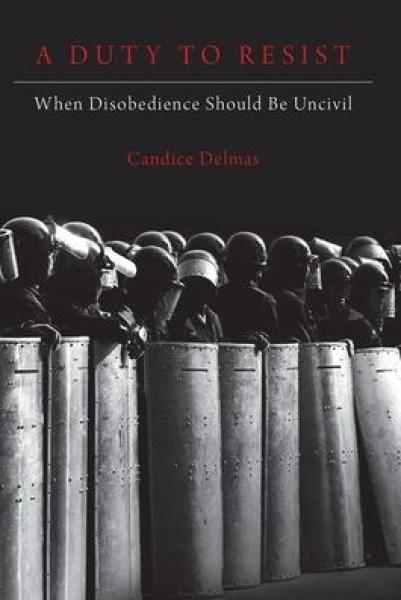Description
Taking seriously the history of this activism, A Duty to Resist wrestles with the problem of political obligation in real world societies that harbor injustice. Candice Delmas argues that the duty of justice, the principle of fairness, the Samaritan duty, and political association impose responsibility to resist under conditions of injustice. We must expand political obligation to include a duty to resist unjust laws and social conditions even in legitimate states.
For Delmas, this duty to resist demands principled disobedience, and such disobedience need not always be civil. At times, covert, violent, evasive, or offensive acts of lawbreaking can be justified, even required. Delmas defends the viability and necessity of illegal assistance to undocumented migrants, leaks of classified information, distributed denial-of-service (DDoS) attacks, sabotage, armed self-defense, guerrilla art, and other modes of resistance. There are limits: principle alone does not justify law breaking. But uncivil disobedience can sometimes be not only permissible but required in the effort to resist injustice.
Delmas systematically and compellingly demonstrates is that our political obligations as well as our latitude to disobey are farmore expansive, given the scale and scope of injustice, violence, and exploitation around us. On this front, Delmas' book stands as an original and significant contribution, and a challenge to accounts which fail to seriously consider what we owe to each other when we live within--and particularly when we benefit from--the conditions of systemic injustice. -- Erin R Pineda, European Journal of Political Theory
The elegance of her argument is that it takes received understandings of political obligation, and detaches them from an uncritical presumption towards duties of obedience... Delmas drives a persuasive and relatable argument through what might otherwise be treacherously broad, hazy territory... The book presents a robust but simple moral reasoning for uncoupling our political obligations from a presumed duty to obey - and one strongly relevant to our times. -- James Greenwood-Reeves, Journal of Law and Society, Volume 46, No 2. 2019
In all, Delmas successfully guides us to reconsider the traditional wisdom of civil disobedience. She also makes a strong case for expanding the notion of political obligation...to encompass a duty to resist. -- Ten-Herng Lai, Ethics
Delmas's book is a vitally important contribution to the literature that will reward close engagement from philosophers working in a variety of different fields of political theory. -- Christopher Finlay, Notre Dame Philosophical Reviews
a provocative and rewarding contribution to the literature particularly valuable for its attention to the question of the situational conditions of obligatory, potentially uncivil resistance -- Suzanne Smith, LSE Review of Books
Delmas tries to detangle our obligations with a thorough taxonomy of principled disobedience ... Delmas suggests that we have to build a collective way of thinking together and resisting together. -- Nausicaa Renner, BookForum
Candice Delmas has produced a beautifully written, deeply engaged, and carefully constrained argument for uncivil disobedience under certain conditions. Her defense of resistance as both right and obligation is hard to resist, and readers who prefer civility will find in this book a worthy opponent. -- Michael Walzer, Professor Emeritus of Social Science, Institute for Advanced Study
Delmas rethinks the conceptual and moral foundations of principled noncompliance with unjust laws, practices, and norms. She radically expands our sense of the scope and demands of political dissent. Her book offers a probing, sophisticated, and timely theory of the duty to resist injustice.-- Tommie Shelby, author of Dark Ghettos: Injustice, Dissent, and Reform
Candice Delmas's wonderful new book contends that we have a political obligation to oppose injustice, which can often give us a duty to disobey the law. The standard arguments for why we should follow the law, such as fairness and associative ties, are actually strong arguments for us to disobey including through uncivil disobedience to resist oppression. Insightful, gripping, and analytically sharp, Delmas's work is both a valuable contribution and a call to action. -- Kimberley Brownlee, Professor of Philosophy, University of Warwick
Product Details
- Oxford University Press, Brand
- May 8, 2020 Pub Date:
- 0197531318 ISBN-10:
- 9780197531310 ISBN-13:
- 316 Pages
- 8 in * 5.4 in * 0.8 in Dimensions:
- 1 lb Weight:




